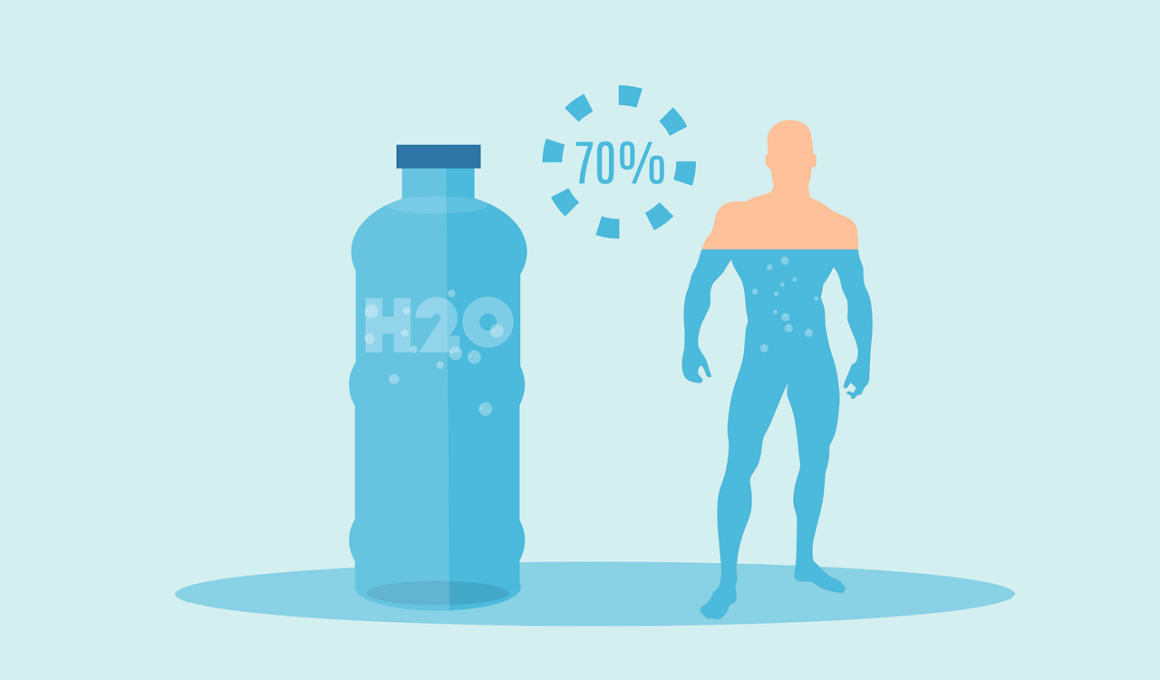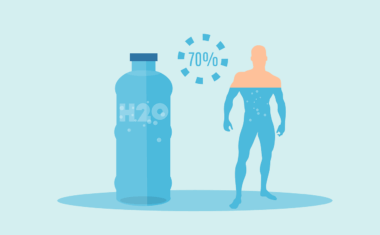Common Mistakes in Hydration Practices Among Football Athletes
Hydration is absolutely crucial for football athletes. Many players, however, make common mistakes that can adversely affect their performance. One frequent error is not drinking enough fluids before practice or games, which can lead to dehydration. Dehydration, even at mild levels, can impair athletic performance, reduce endurance, and increase the risk of injury. It’s essential to consume adequate water throughout the day, especially leading up to training sessions and matches. Another common mistake is improper timing in hydration. Many athletes only drink water during breaks or halftime, which can be too late to offset dehydration caused by exertion. Continuous hydration enables the body to effectively regulate temperature, enhance endurance, and stave off fatigue. Furthermore, some players fail to consider the importance of electrolytes. Water alone doesn’t always suffice, especially during intense exertion. Replenishing lost minerals through sports drinks can restore balance in the body’s systems. Ignoring these hydration essentials can lead to mistakes that may hinder performance and even health. Athletes must educate themselves about effective hydration strategies throughout their careers, continually adjusting their approaches as needed.
A common misconception among football players is that thirst is a reliable indicator of hydration needs. While thirst can signal the need for water, it often arrives too late to be effective. Relying solely on thirst can result in inadequate hydration leading to decreased physical performance. Athletes should strive for a proactive hydration strategy instead. A well-planned approach to hydration will allow players to consistently maintain optimum hydration levels throughout training. They should regularly monitor their urine color; light yellow indicates adequate hydration, while darker hues suggest the need for more fluids. Some footballers also eliminate effective hydration practices when it comes to weight management. They may think that reducing fluid intake contributes to weight loss, but this could not be further from the truth. In reality, it can lead to performance degradation, cramping, and overall poor health. It’s critical for players to understand that maintaining a healthy body weight includes adequate fluid consumption. Integrating hydration into nutrition plans can optimize overall performance, making it an essential focus in their training regimens.
Not Drinking Enough During Games
Another frequent error is underestimating fluid needs during games. Players often underestimate how much they sweat during intense physical activity. Football matches can be highly demanding, and players can lose a significant amount of fluids through sweating, especially in hot weather. Failing to replace lost fluids can quickly interfere with athletic performance. Players should take advantage of downtime during matches to consume water or electrolyte-rich sports drinks. Many athletes mistakenly think they can wait to hydrate during halftime, but this approach can leave them vulnerable to fatigue. Further, drinking too little during games can impair coordination, endurance, and overall performance. Creating awareness around fluid intake before and during matches is essential for players to understand the importance of staying hydrated. Leverage technology such as hydration apps or reminders to ensure that hydration practices are not overlooked. Ultimately, encouraging a culture prioritizing hydration can significantly enhance players’ performance on the field. Athletes who emphasize hydration are more likely to maintain peak performance levels and end the game feeling strong rather than fatigued.
Some football players also overlook the significant role of hydration in recovery post-game. Many individuals think that hydration only matters during football matches or training sessions, but it is equally vital afterward. The body requires replenishment of fluids and electrolytes that are lost during physical exertion. Failure to hydrate post-game can slow recovery, delay muscle repair, and increase the risk of injury. Incorporating hydration into post-game routines is essential for players aiming to recover quickly and effectively. Endurance athletes have long recognized the value of proper post-game hydration in maintaining performance levels over the course of a season. Replenishing lost fluids post-activity helps rehydrate muscles and aids digestion. Players can also benefit from recovery shakes containing electrolytes after matches. Additionally, some athletes may not realize that certain factors, such as altitude and weather conditions, affect hydration needs significantly. Understanding these conditions will allow players to better adapt their hydration strategies accordingly for optimal performance regardless of the circumstances.
Ignoring Individual Hydration Needs
Another critical mistake football players often make is ignoring their individual hydration needs. Every athlete’s body is unique and requires different amounts of fluids. Factors such as weight, activity level, and environmental conditions will affect individual hydration requirements. Customizing hydration strategies towards personal needs is vital for optimal performance. It’s essential for players to recognize their body’s signals and understand how they respond to training and match conditions. Creating personalized hydration plans will help ensure that athletes are adequately hydrated based on their unique metrics. Monitoring body weight before and after training can provide insights into the amount of fluid lost due to sweat; this information is vital in planning hydration needs. Similarly, utilizing sweat testing can help determine individual electrolyte loss, informing them when to incorporate electrolyte-rich drinks. Athletes should also be aware that hydration needs can fluctuate over time based on various factors, such as training intensity and weight changes. Staying educated on hydration requirements enables football players to remain informed throughout their athletic journey.
Neglecting hydration education is another crucial aspect that affects many football athletes. Without understanding the importance of hydration practices, players become susceptible to common mistakes. Football training programs should include hydration education as an essential component. Athletes benefit from learning how to assess their hydration status, understand the merits of various fluid sources, and the impact of dehydration on performance. This knowledge empowers them to make informed decisions to maintain optimal hydration levels. Coaches, trainers, and sports nutritionists must actively promote hydration awareness within teams. Additionally, integrating hydration monitoring sessions during team activities will help players recognize when and how much to drink. Establishing a culture focused on hydration will benefit athletes not only immediately during games but also in their long-term performance. Peer education can also be invaluable; experienced players can share their hydration strategies with newer teammates. In summary, continuous education will promote a mindset among football players that prioritizes hydration and healthy practices throughout their athletic careers.
Conclusion and Best Practices
In conclusion, addressing hydration is fundamental for football athletes looking to enhance their performance and overall wellbeing. By recognizing and avoiding common mistakes surrounding hydration practices, players can significantly improve their stamina and efficiency both on and off the field. Essential takeaways include proactive hydration strategies, individualized fluid needs, and proper hydration timing throughout both training sessions and games. Educating oneself about the impacts of hydration can help foster better habits and reinforce a culture of hydration within teams. Effective hydration education should not be an afterthought but an integral part of effective training. Also, utilizing technology such as hydration apps can drive greater awareness and encourage more diligent practices. Making hydration a priority not only influences personal performance, but it positively contributes to team dynamics as a whole. Understanding the importance of hydration will empower football athletes to perform at their best while minimizing the risk of injury and burnout. By incorporating these best practices into their routines, athletes can enhance their performance consistently and maintain their physical health.





